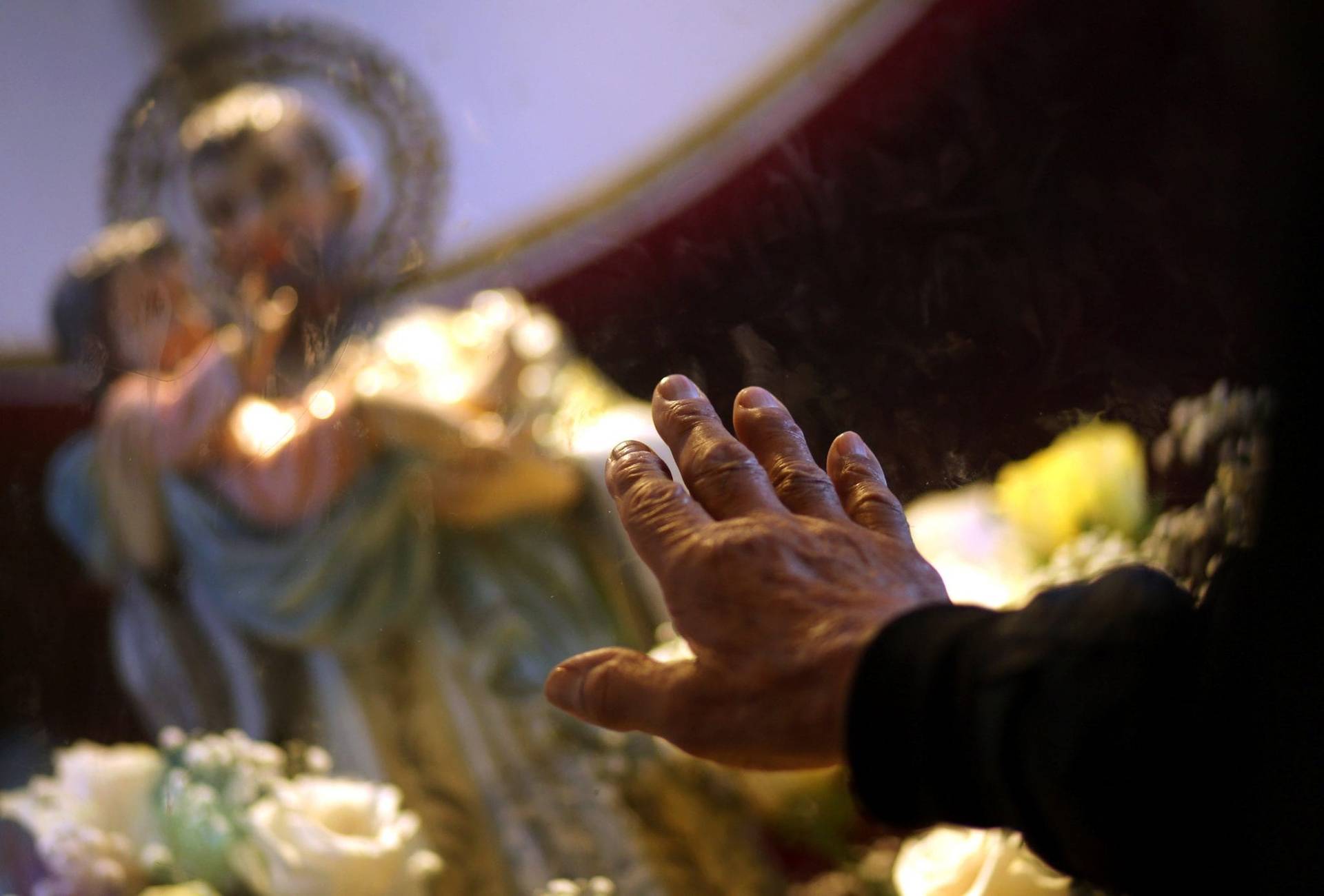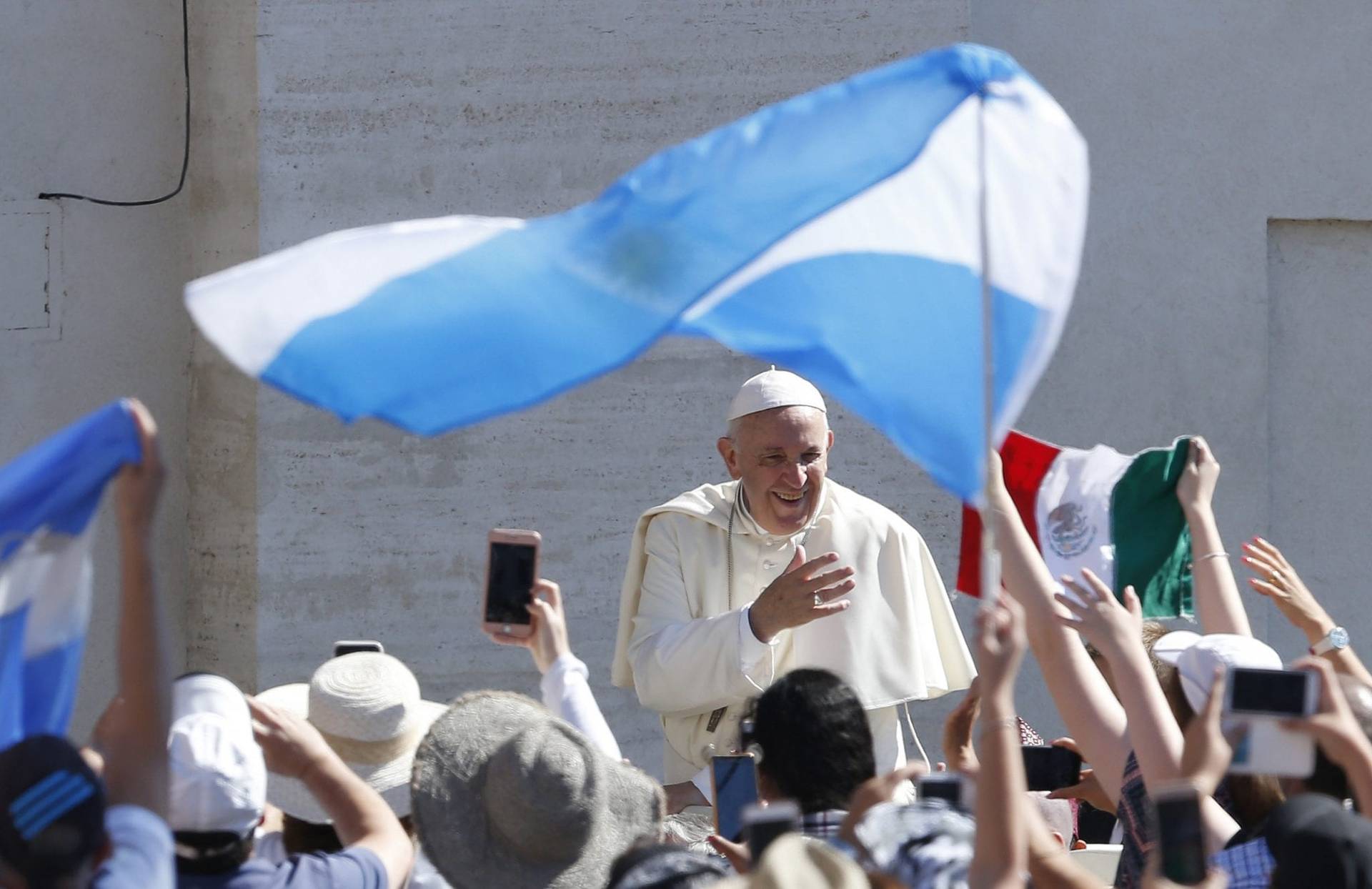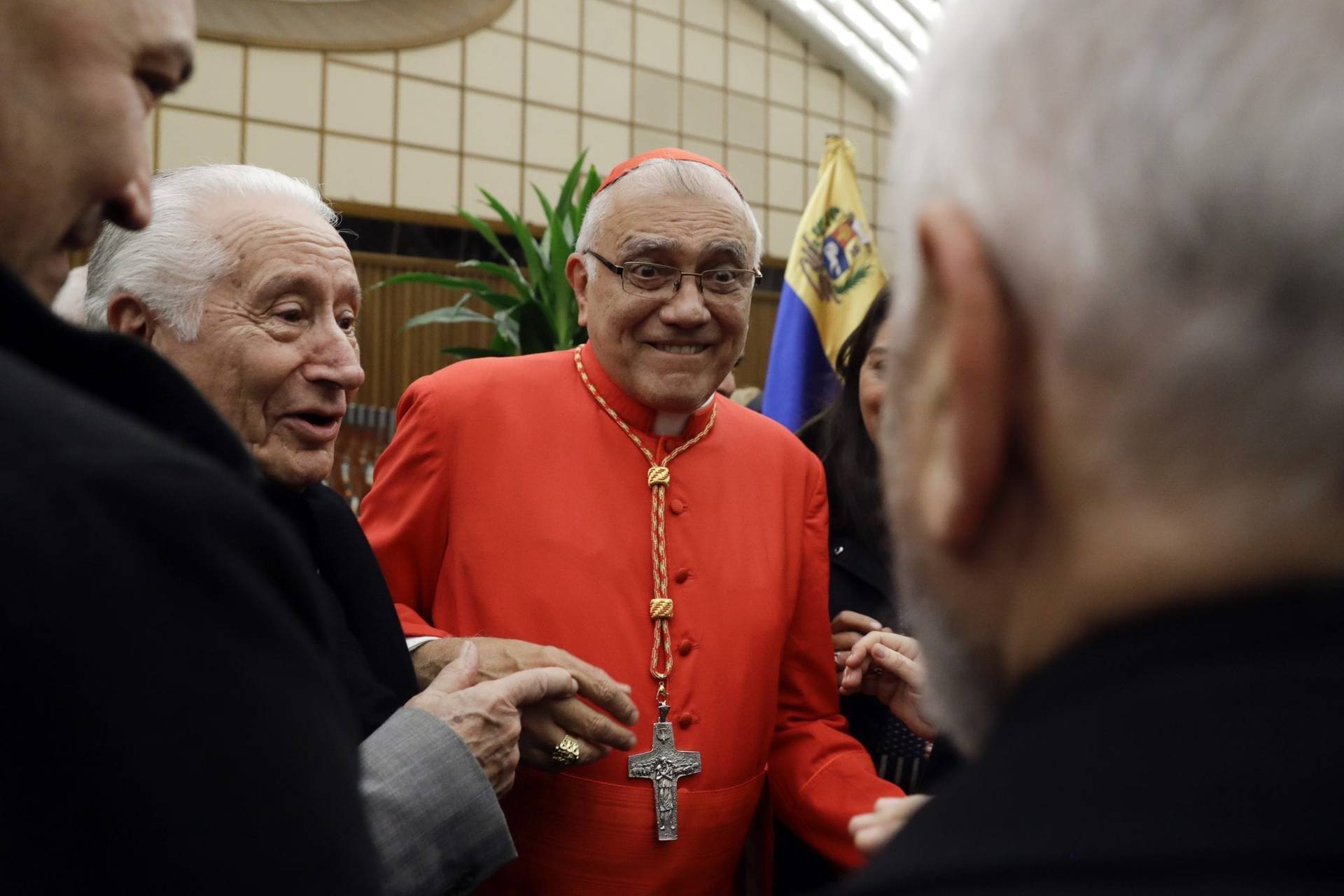BUENOS AIRES, Argentina — Pope Francis’s Argentina today is a polarized country, something visible virtually everywhere in the streets of Buenos Aires, the nation’s capital and political center. People of all walks of life right now are carrying colorful handkerchiefs expressing their views on legalizing abortion: Those in favor wear green, those against it light blue.
The color coding reflects a bitter national debate following a narrow vote in the senate last year defeating a bill to expand abortion rights. The division today now on display has long been about more than abortion, extending to politics, the economy, views on history’s first Argentine pontiff and even Argentina’s history.
RELATED: God love ’em, Argentines just can’t help criticizing their Pope
According to Bishop Daniel Fernandez from Jujuy, in Argentina’s remote northwest, this national polarization, dubbed here as a “crack,” is something that deeply worries the pope.
“Pope Francis is concerned about this famous ‘crack’ that grows and doesn’t allow us social friendship, that beautiful concept that means we can think differently and have different philosophies and praxis but when it comes to generating the common good, we can each put the best we have,” Fernandez said on Monday.
Ahead of upcoming national elections, the country is so divided that 80 percent of those who will vote in primaries on August 11 and then again in October already know whether they want to re-elect President Mauricio Macri or opt for former president Cristina Fernandez de Kirchner, who’s running for VP with Alberto Fernandez.
The campaign is focused solely on the other 20 percent, and it’s been fairly nasty.
Hence a recent message signed by the leaders of the country’s Catholics, Jews, Muslims and Protestants insisting, “Politics should have an altruistic character instead of being reduced to disparaging adversaries or a superficial game of vain exchanges.”
“Choosing authorities puts us before the unsurpassable opportunity to dialogue about our present and our future, which represents the hope we have for our country,” the statement presented last week said.
The religious leaders also insisted those who suffer the most, meaning the poor and the excluded, must be priorities.
“There is no true freedom without fraternity, and this is not given without the concrete realization of social rights,” they wrote.
The religious leaders wrote that politicians can’t continue issuing “diagnoses” about what the problems the country faces are.
“Each and every one of the inhabitants of this country knows” about issues such as structural poverty, drug trafficking, job creation, care for human life, the environmental crisis and an inclusive education, and that it takes more than a presidential term to fix them. Hence, they said, there needs to be continuity of positive policies from one government to another.
Speaking with Crux on Tuesday, Father Jose Maria “Pepe” di Paola expressed frustration over the fact that when, together with other priests, he asked the presidential candidates how they’re going to create new job opportunities and reduce structural poverty, only one candidate, Roberto Lavagna, accepted the challenge.
Lavagna will soon meet Di Paola and some 30 other priests known as “curas villeros,” meaning they live and minister in the slums of Buenos Aires and environs, where more than 16 million of Argentina’s 42 million inhabitants live.
The priest, who lives in the parish of San Juan Bosco on the outskirts of Buenos Aires, had little good to say about the candidates. Crux was in his parish on Tuesday, as he pre-taped a radio show with Marcelo Figueroa, a Protestant pastor who’s close to Pope Francis, and the priest seemed to hold nothing back as the two discussed various types of violence in the pontiff’s country.
“Five years ago, they spoke about a ‘sensation of insecurity,’” Di Paola said. “Today there’s a belief that the only way to stop violence is through violence.”
His reference was to Cristina Fernandez de Kirchner and her late husband, both of whom spoke of a “sensation of insecurity” as crime rates soared; as well as Patricia Bullrich, a security minister of Macri, whom Di Paola believes prioritizes force to resolve conflicts.
“People today need a job, not a social plan,” Di Paola said. “Slogans are useless. Many words are being used, but there are very few actual proposals.”
As the primaries approach, many bishops are releasing their own messages and addressing the political situation in their homilies, weekly columns and interviews. They avoid taking sides, generally arguing the country’s crisis is the result of structural problems that cannot be solely pinned on the current government.
Bishop Luis Antonio Scozzina of Oran said it’s important to remind people that “democracy doesn’t only imply voting.” He noted with regret that in Oran, the “biggest job market is drug dealing,” and that it pains him to see how young people end up consumed by this illegal industry.
In an interview with Infobae, Scozzina disn’t refer to his predecessor, Bishop Gustavo Zanchetta, currently suspended from a Vatican position pending a civil and canonical investigation into allegations of sexual abuse. He’s been charged and is expected to face a tribunal on August 8.
RELATED: Argentine bishop at heart of phone porn scandal charged with abusing seminarians
Fernandez said achieving an understanding among different political movements in Argentina is not easy, but those who aspire to a leadership position should try to find a “common path” with “clear goals to fulfill and concrete steps to take.”
“You have to have the ability of a firefighter, not an arsonist,” he said.
According to the Observatory of Social Debt of the Pontifical Catholic University of Argentina (UCA), this year some 35 percent of the population will live beneath the poverty line. Fernandez believe that not a small part of this is caused by the corruption of the political class.
“Corruption is stolen development,” he said.
Stealing “has been naturalized in the minds of many, and it’s the result of decades and decades [of corrupt governance],” he said. “Since five generations have lived [thinking] this way, it’s almost genetic.”
However, Fernandez insisted it’s not about statistics, but about the fact that three people a day come to him asking for a job, and he regularly hears from crying mothers who cannot feed their children.
Bishop Juan Rubén Martínez of the northern diocese of Posadas said everyone, “but in particular those who have social, political, economic and religious leadership, must have a profile that implies in their actions and commitments a preferential option for the poor.”
“We should be especially attentive to whether the leaders are narcissists who only seek power and money, and if they have special consideration for so many marginalized brothers,” Martínez wrote in his weekly column.
Last week, on the solemnity of Our Lady of Itati, the patroness of Posadas, the bishop said in his homily the Church will never tell the faithful who to vote for.
“But we will ask you to look for the common good, thinking of the other,” he said, echoing Francis in urging a “culture of encounter.”
Follow Inés San Martín on Twitter: @inesanma
Crux is dedicated to smart, wired and independent reporting on the Vatican and worldwide Catholic Church. That kind of reporting doesn’t come cheap, and we need your support. You can help Crux by giving a small amount monthly, or with a onetime gift. Please remember, Crux is a for-profit organization, so contributions are not tax-deductible.












